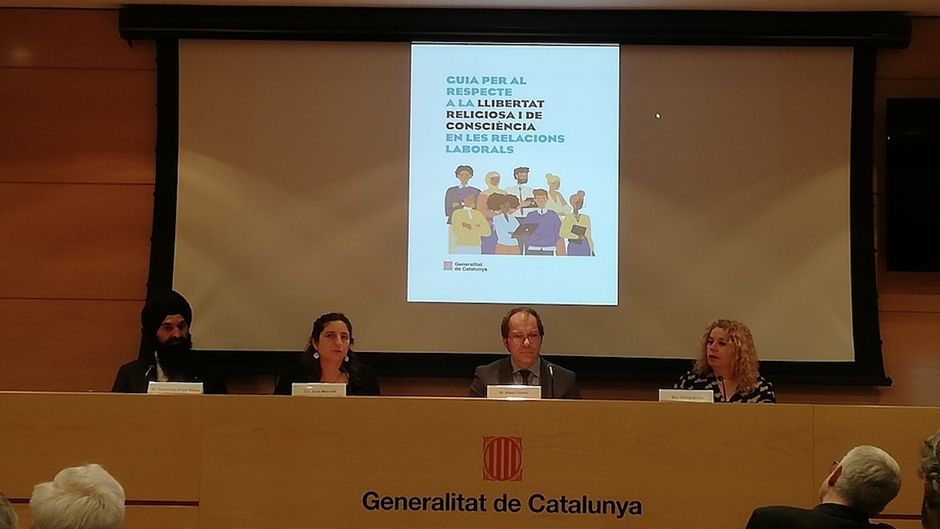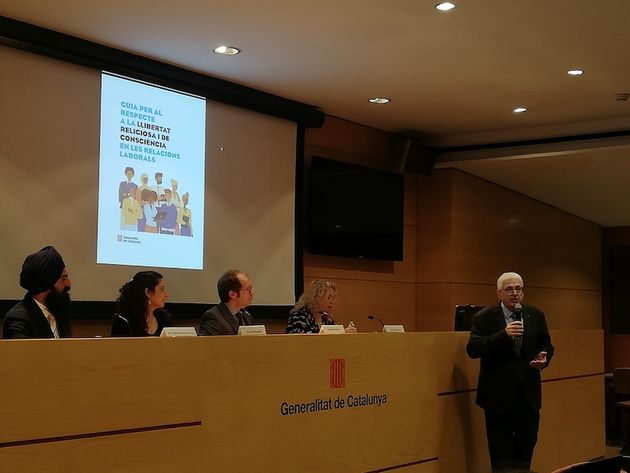The document launched by the government focuses on how religious expressions impact the relationships of co-workers.
 Presentation of the guide for the respect of religious freedom at the workplace. / Twitter @afersreligiosos.
Presentation of the guide for the respect of religious freedom at the workplace. / Twitter @afersreligiosos.
The General Office of Religious Affairs of Catalonia has released the Guide for respect for the religious freedom and conscience in labor relations, which seeks to better understand the religious fact and guarantee coexistence in the workplace.
The 135-page document was written by Professor Albert Toledo, who has extensive experience as a labor lawyer.
Among other things, it analyses how to address issues such as the organization of schedules and breaks, the use of a certain clothing or symbolism, food or the possibility of exercising conscientious objection.
The aim, says Toledo, is “to make the execution of the employment contract compatible with the religious convictions of the worker”.
The guide also suggests that the collective agreement and even the corporate social responsibility programs “provide cases in which workers can exercise the right to religious freedom in a scheduled and consensual manner”.
Religious Affairs Department of the Catalan government assures that the document is strictly for guidance regarding legal concepts in the workplace, and it aims to offer criteria for the prevention and resolution of conflicts.
It is about “helping to raise awareness of the importance of taking into account the religious dimension in the workplace and the rights of workers in this area”, points out the institution.
The directorate general stresses that the document is not equivalent to a legal regulation of religious fact in the work environment.

The author of the guide is in favor of letting the competent authorities “seek and adopt the specific regulations they consider most appropriate”.
The guide is intended for “business organizations, entities, individuals and administrations that hire workers and, at the same time, for workers, unions and all types of professionals involved in human resource management and the resolution of labor conflicts”
Furthermore, they also point to religious communities so that “they can develop a more constructive and active role in the workplace”.
The aim, according to the author of the guide, is “for the company to be able to offer flexibility measures before a conflict occurs for reasons of conscience”.
Both the public administration and the company must work to prevent the worker “from having to choose between fulfilling his work obligations and fulfilling his religious obligations”, he adds.
Unlike other countries in Europe, in Spain “there is little legal tradition of exercising the fundamental right to religious freedom within the employment relationship”.
[donate]

Las opiniones vertidas por nuestros colaboradores se realizan a nivel personal, pudiendo coincidir o no con la postura de la dirección de Protestante Digital.
Si quieres comentar o